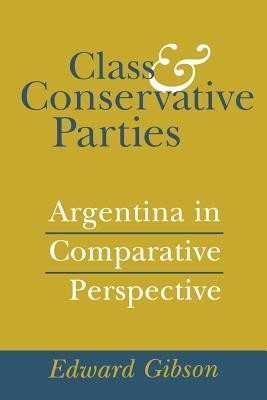
- We will send in 10–14 business days.
- Author: Edward L Gibson
- Publisher: Johns Hopkins University Press
- ISBN-10: 0801867215
- ISBN-13: 9780801867217
- Format: 15.2 x 22.9 x 1.8 cm, softcover
- Language: English
- SAVE -10% with code: EXTRA
Reviews
Description
What promotes or hinders the development of conservative parties in Latin America? What does this augur for the stable representation of the propertied and socially privileged in political parties? In Class and Conservative Parties, Edward L. Gibson examines these questions in light of Latin America's long legacies of authoritarianism and democratic instability.
Gibson explores these questions theoretically, historically and comparatively. He develops an approach to the comparative study of conservative parties that sheds new theoretical light on the social dynamics of party politics. Historically, he traces the determinants of conservative party development in Argentina, providing a rich analysis of how interactions between conservatism's elite "core constituencies," party leaders, and the state shaped the rise and fall of conservative parties in the 19th and 20th centuries. Gibson also presents a comparative examination of conservative party politics in Latin America during the 1980s and 1990s and offers a thoughtful look ahead to conservatism's future in the region.
EXTRA 10 % discount with code: EXTRA
The promotion ends in 18d.02:50:30
The discount code is valid when purchasing from 10 €. Discounts do not stack.
- Author: Edward L Gibson
- Publisher: Johns Hopkins University Press
- ISBN-10: 0801867215
- ISBN-13: 9780801867217
- Format: 15.2 x 22.9 x 1.8 cm, softcover
- Language: English English
What promotes or hinders the development of conservative parties in Latin America? What does this augur for the stable representation of the propertied and socially privileged in political parties? In Class and Conservative Parties, Edward L. Gibson examines these questions in light of Latin America's long legacies of authoritarianism and democratic instability.
Gibson explores these questions theoretically, historically and comparatively. He develops an approach to the comparative study of conservative parties that sheds new theoretical light on the social dynamics of party politics. Historically, he traces the determinants of conservative party development in Argentina, providing a rich analysis of how interactions between conservatism's elite "core constituencies," party leaders, and the state shaped the rise and fall of conservative parties in the 19th and 20th centuries. Gibson also presents a comparative examination of conservative party politics in Latin America during the 1980s and 1990s and offers a thoughtful look ahead to conservatism's future in the region.


Reviews